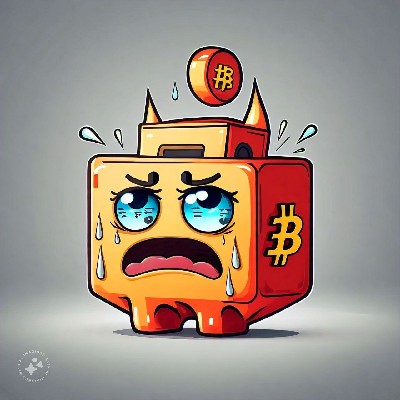


Rifampicin priceRIF
RIF to USD converter
How do you feel about Rifampicin today?
About Rifampicin (RIF)
What Is Rifampicin?
Rifampicin is a meme coin on the Solana blockchain, blending the playful nature of meme coins with a unique connection to science. Inspired by the compound Rifampicin, known for its use as an antibiotic and its emerging role in longevity research, this coin represents a fusion of cryptocurrency and gamified scientific exploration. It was launched on the Pump Science platform, a space dedicated to engaging the public in life-extension research through gamification and speculation.
How Rifampicin Works
The concept of Rifampicin, as a meme coin, draws inspiration from its namesake compound, a well-known antibiotic that has recently garnered attention for its potential anti-aging properties. In scientific research, Rifampicin has demonstrated the ability to activate cellular defense mechanisms, helping organisms like C. elegans—a commonly used model in aging studies—combat oxidative stress. This stress, caused by harmful free radicals, is a major contributor to cellular damage and aging. By bolstering the cell’s resilience and maintaining protein quality, Rifampicin has been linked to longer, healthier lifespans in these organisms.
The Rifampicin project operates on the Solana blockchain, known for its high speed and low transaction costs. This blockchain infrastructure ensures seamless interactions within the ecosystem, from token transactions to participating in experiments on the Pump Science platform. By leveraging Solana’s scalable and energy-efficient network, the project can accommodate its gamified approach to longevity research while maintaining accessibility for its community of meme coin enthusiasts and scientific speculators alike.
What Is RIFSOL Token Used For?
The RIFSOL token, with a total supply of 1 billion, serves as the utility token of the Rifampicin ecosystem, operating on the Solana blockchain. As part of this meme coin project, RIFSOL allows holders to participate in various activities within the Pump Science platform, including funding and proposing longevity experiments, speculating on life-extension compounds, and engaging with research initiatives.
Conclusion
Rifampicin is a meme coin that merges humor, speculative appeal, and scientific exploration in a distinctive way. Built on Solana, it leverages blockchain technology to facilitate community engagement and participation in gamified longevity research. As with any speculative cryptocurrency, potential investors are encouraged to approach with careful consideration, balancing the project’s unique concept with its inherent risks.
AI analysis report on Rifampicin
Rifampicin price today in USD
Rifampicin price history (USD)
 Lowest price
Lowest price Highest price
Highest price 
What is the highest price of Rifampicin?
What is the lowest price of Rifampicin?
Rifampicin price prediction
What will the price of RIF be in 2026?
What will the price of RIF be in 2031?
FAQ
What is the current price of Rifampicin?
What is the 24 hour trading volume of Rifampicin?
What is the all-time high of Rifampicin?
Can I buy Rifampicin on Bitget?
Can I get a steady income from investing in Rifampicin?
Where can I buy Rifampicin with the lowest fee?
Rifampicin news
Rifampicin market
Rifampicin holdings by concentration
Rifampicin addresses by time held

Global Rifampicin prices
- 1
- 2
- 3
- 4
- 5
How to buy Rifampicin(RIF)

Create Your Free Bitget Account

Verify Your Account

Convert Rifampicin to RIF
Join RIF copy trading by following elite traders.
New listings on Bitget
Buy more
Where can I buy Rifampicin (RIF)?
Video section — quick verification, quick trading

RIF to USD converter
RIF resources
Rifampicin ratings
Bitget Insights




Related assets
Additional info on Rifampicin
Coin overview
Coin-related
Trade-related
Trade
Earn

































